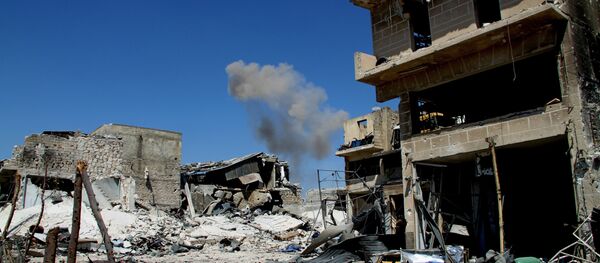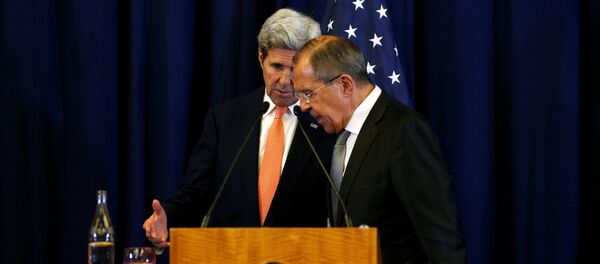“We can also make reference to the fact that they are fearful of exposing and publishing the whole agreement with Russia, which Russia is very much insisting upon. It’s not only that but also having some sort of Security Council resolution binding that sort of the agreement,” the deputy said.
He further said that the US is trying to balance between very contradicting interests, such as those of the Saudis and the Turks, let alone the many factions on the ground.
“Rebels on the ground that are obviously backed by Saudi Arabia have refused to accept the ceasefire from the beginning. They issued a statement including the most notable, branding the rebel groups as moderate, which puts the US in a very bad position,” the deputy said.
He further said that they seem to be unable to control the situation and the only thing that they can do is threaten to cause it to deteriorate even more.
“Our estimate at Gnosos is that America has made some sort of strategic shifts, which explains Secretary Kerry’s visit to Moscow with a proposal to join forces against Daesh and al-Nusra [Front],” Waqqaf said.
He further said that this strategic shift is about recognizing for the very first time that the US is probably looking for a way to ‘ditch’ the moderate rebels that it was supporting in the beginning.
He said that the Syrian government and its Russian allies have started to resume their offensive on Aleppo in earnest probably trying to push eastern Aleppo into a peace deal, such as the one that it struck previously in parts of Homs.
Over the last several days, the ceasefire in Syria has teetered on the verge of collapse. Fighting in Aleppo intensified after the Syrian army declared an end to the week-long break in the fighting on Friday, blaming militants for numerous violations that made the cessation of hostilities untenable.
Despite numerous violations of the ceasefire, politicians and experts say that it hasn’t failed yet. On Monday, Syrian Foreign Minister Walid Muallem said that the US-Russia-brokered ceasefire agreement is still viable.




